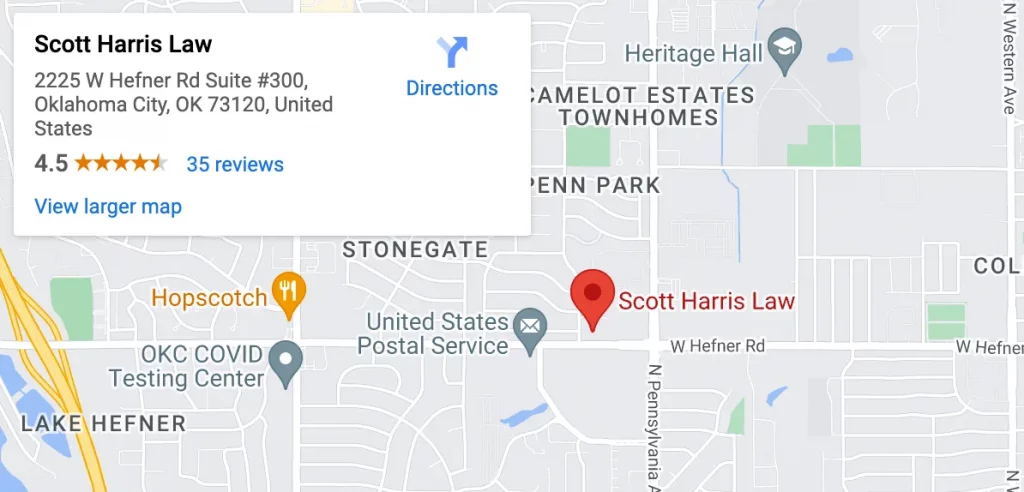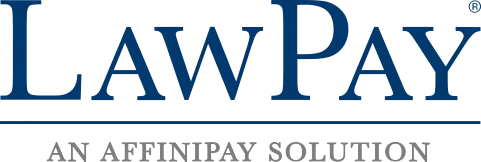Being in debt can be difficult on your body and mind, especially if you still owe money on bills that are past their due date. Fortunately, you can file for Chapter 13 bankruptcy to have some of your debts discharged if you have a reliable source of income but overwhelming debts.
Since we know the negative consequences money problems may have on you and your family, we at Scott Harris Law, PLLC, are committed to helping you find a solution. We can help you to check your Chapter 13 eligibility in Oklahoma City, OK. We have also successfully guided our clients through the debt relief process by offering legal advice and support and dealing with problems, including debt negotiation, foreclosure defense, and other debt relief-related issues. Call our law office to speak with a Chapter 13 bankruptcy attorney in Oklahoma City so that we can discuss your legal options and get you started on the path to a future free of debt.
Why Do I Need a Chapter 13 Bankruptcy Attorney in Oklahoma?
It requires effort and time to file for bankruptcy. One must be able to adhere to specific guidelines and meet all eligibility conditions. Additionally, there are instances in which you may not have the required documentation, which might lead to problems. Hire a lawyer if you wish to avoid this.
- Our debt relief lawyers have a solid understanding of bankruptcy rules and years of expertise.
- They have guided our clients through the bankruptcy procedure, made them aware of the prerequisites, and helped them choose the bankruptcy chapter that is appropriate for them.
Set up a meeting with us now if you wish to begin the debt relief process!
What is Bankruptcy?
As defined by Chapters 7, 11, 12, or 13, an individual debtor may file for bankruptcy protection under the U.S. Bankruptcy Code. Family farmers and fishermen are permitted to use Chapter 12. Because of this, most people choose Chapter 7 or Chapter 13 bankruptcy. To file under Chapter 7, you must pass the “means test,” which compares your income to the income of other Ohio households in similar situations. If you are not qualified for Chapter 7 bankruptcy or have irreplaceable non-exempt assets you do not want to lose, you have to file under Chapter 13.
Chapter 7 versus Chapter 13
Another aspect that affects the decision to file a Chapter 13 bankruptcy is the ability to repay debt under the Chapter 13 plan that might not be dischargeable in a Chapter 7 bankruptcy. Two instances of these non-dischargeable obligations are unpaid income taxes and child support.
A Chapter 13 bankruptcy petition will enable the debtor to reestablish credit while the case is ongoing, in contrast to a Chapter 7 bankruptcy filing. Payments made under a Chapter 13 plan (on loans taken out after filing bankruptcy and while the plan is pending) help to improve the debtor’s credit rating with the credit reporting bureaus.
Advantages of Filing Chapter 13
Certain obligations under the Chapter 13 repayment plan usually undergo restructuring to give the debtor better terms to repay the loan like:
- One of the main benefits of Chapter 13 is lower or no interest rates. One of the benefits is having the power to discharge junior liens on secured property, such as second mortgages and home equity lines of credit.
- The Chapter 13 restructuring process also provides the debtor the option to keep their assets, such as a house or a car, even if they are behind on payments when the Chapter 13 case is filed—even if a foreclosure judgment has already been rendered or a vehicle has already been repossessed.
- Chapter 13 plan payments last between three and five years. Any debt that remains unpaid right before your Chapter 13 repayment plan is finished may have its repayment terms extended.
- If financial issues arise again after completing the Chapter 13 plan, you may file for another Chapter 13. You would not be subject to the six-year ban on filing for Chapter 7 bankruptcy if you paid off at least 70% of your unsecured debts during your Chapter 13 bankruptcy.
- You are frequently permitted to keep your home and other assets while filing for Chapter 13 bankruptcy. You agree to repay your debts following the payment plan you submit to the United States bankruptcy court in this type of bankruptcy. As soon as the bankruptcy court approves this, your creditors are informed and required to stop communicating with you. The monthly payments in your repayment plan will be used to pay off your debts to creditors.
Speak with an Oklahoma bankruptcy lawyer at Scott Harris Law, PLLC, immediately to discuss your legal rights and choices because time is of the essence in this circumstance.
Who is Eligible to File for Chapter 13 Bankruptcy?
The following conditions must be met to be eligible under Chapter 13 rules in the U.S. Code of Bankruptcy:
If You’re Not a Business Entity
Only an individual or a married couple filing jointly may file for bankruptcy under Chapter 13. Since they are not eligible for Chapter 13 protection, corporations and limited liability companies (LLCs) must apply for bankruptcy under Chapter 11.
You may do so for the debts for which you are personally liable, regardless of whether you own the business as a lone owner or with a partner. However, neither stockbrokers nor commodity brokers are eligible for Chapter 13.
Previous Bankruptcy Does Not Prevent You from Filing
If you discharged a certain debt in a Chapter 7 bankruptcy during the last four years or in a Chapter 13 bankruptcy within the last two years, you are not qualified for a Chapter 13 bankruptcy until the necessary period has passed.
The Chapter 13 Case was Not Discharged after Three Months
Once the bankruptcy petition was dismissed within the previous three months, the borrower would not be qualified for either Chapter 13 or Chapter 7 for any of the following reasons:
- Intentionally breaking a court order or skipping court appearances; and
- The debtor requested that the case be dismissed after a creditor requested the court’s approval to lift an automatic stay.
Completion of Credit Counseling
A Chapter 13 debtor needs to provide a certification of evidence with the bankruptcy proceedings proving that debt counseling was provided for at least 180 days before the Chapter 13 petition by an accredited credit counseling firm.
If one was created by the credit counseling agency, the debtor must submit a copy of it to the court. The certificate is to be presented within 15 days of the debtor filing for bankruptcy, either with the original documents or separately.
If Your Debts Aren’t Too High
There are limits on the debt amount that can be discharged through a Chapter 13 bankruptcy. Individuals who owe less than $2,750,000 in total unsecured debt (debt that is unsecured by property, such as credit card debt and medical bills) and secured debt (debt for which a creditor can seize the property securing the obligation if it is unpaid) are eligible for Chapter 13 bankruptcy.
You’ve Already Filed your Taxes
To meet the Chapter 13 requirements, you must show that you filed state and federal income tax returns for the previous four years. You must deliver a copy or transcript of your most recent federal tax return to the Chapter 13 trustee (also known as a bankruptcy trustee) no later than seven days before the first 341 hearing.
How Does Chapter 13 Bankruptcy Work?
You must adhere to a specific procedure when submitting a Chapter 13 bankruptcy petition. You will be guided through the process by your lawyer. Some of these may consist of:
- Paying off the filing fees required for bankruptcy.
- Attending a court-approved organization’s compulsory credit counseling class. This course is designed to assist you in determining whether you earn enough money to pay off your obligations. The court must get a copy of your completion certificate.
- Presenting a repayment strategy before the judge. This is your suggested plan for paying off your debts. Your debt collectors will have the chance to evaluate and object to your plan once you present it to the court and them. The court must approve the plan at a confirmation hearing.
- Awaiting the court’s approval of the payback schedule. It will guarantee that the plan conforms with bankruptcy laws, is not intended to manipulate the bankruptcy process, and that you have the financial capacity to make the payments.
- Finishing the payback schedule in three to five years. The remaining debts may be canceled once it is finished.
What are the Various Debts I Have to Pay Back in a Chapter 13 Bankruptcy?
Priority, secured, and unsecured obligations are the three types of debts you will pay back under Chapter 13.
- Debts with a higher priority are those that require complete repayment. Taxes, alimony, and child support are examples of this.
- Secured debt: These include items like your house or automobile, which you must continue to make payments on.
- Unsecured debt: These are loans you may not have to repay in full or at all. Credit card debt and medical expenses fall under this category.
Call our Chapter 13 Bankruptcy Attorney in Oklahoma Now!
Are you eligible for Chapter 13 bankruptcy in Oklahoma City, OK? If you are, time is of the essence. Take action as soon as you can to get debt relief. You shouldn’t handle the bankruptcy procedure by yourself.
Allow the attorneys at Scott Harris Law, PLLC, to assist you in making a fresh start. We can successfully and effectively help you file your bankruptcy case because of our extensive knowledge and experience in bankruptcy law. Schedule a free consultation with us right now!




